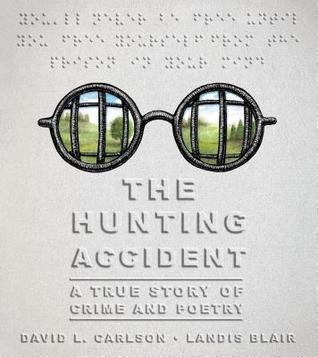Charlie Rizzo is just a young boy when his mother and grandmother take him from Chicago to California. After his mother's death, Charlie, still young, goes back to Chicago and his father. He has to adjust to a whole new life, not the least of which is his father's blindness, ostensibly a result of a youthful hunting accident, and the way that this disability makes Charlie his father's caretaker in ways that he comes to resent as he grows. As Charlie gets older, he falls in with a bad group of kids and starts heading down a path that has no good end and very probably only ends in jail time or worse. It is to this defiant but still pliable son on the cusp of adulthood that Matt Rizzo finally tells the real story of his blindness, what shaped him into the man he became, and continued to impact and change his life, including his marriage, long after the events were past.
Growing up in Chicago's Little Italy, Matt Rizzo was blinded not in a hunting accident but during a job for the Mob. Newly blind and increasingly depressed, he ends up in Stateville Prison in special housing with a notorious and terrifying cellmate: Nathan Leopold of Leopold and Loeb fame. (Note that the murder these two committed was grisly and horrifying so you may or may not want to look it up.) Oddly enough, his association with this infamous sociopath leads him to learn braille and to discover the power of reading and writing. And ultimately he bequeaths his story and his lifetime of writing to his son Charlie in the hopes that this information will help turn Charlie around and that Charlie will keep his story alive.
This is an enormous book, break your wrist enormous and I'm not entirely convinced it needs to be so long. The illustrations are black and white and covered in tiny cross-hatchings that contribute to a feeling of darkness, bleakness, and despair. But this is more than just the black tale of Matt Rizzo's crime and punishment, it is also at its heart the story of parenting, of a father and son trying to come together, of a father wanting a different life for his son, a better life. The stories contained in it expand outward, each framed by another and another, all tied thematically, explicitly and not explicitly, to Dante's Inferno, chronicling both Dante and Matt Rizzo's journeys through Hell. There are pieces of Matt's own writing included in the text and while it is understandable why they were included, they are rather baffling bits of writing. On the whole, Charlie's story is less interesting than his father's so the book is slow going until Matt finds it necessary to tell Charlie his own life story, at which point it picks up. Over all, I appreciate the idea of redemption through literature and of the surprising turn Matt Rizzo's life takes living with Nathan Leopold but the fact that poetry, graphic non-fiction, and true crime are not my bailiwick combined with the unrelenting darkness of the tale and its drawings made me unable to fully appreciate this as so many others have. Looking at other reviews, I am firmly in the minority though so if anything about this book has piqued your interest, by all means do grab a copy and form your own opinions.



I super appreciate you trying it (and I love being a friend who can push you out of your comfort zone!) Sounds like, while you didn’t love it, overall you liked it well enough? I agree about the dad’s poetry being over my head too. But the story of the imprisonmemt was just so compelling for me, it ran roughshod over anything else that may have gotten in the way.
ReplyDelete